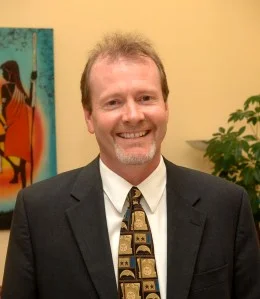Message from the Provost
The theme of this year’s Scholarship of Teaching and Learning Conference—“Effective Teaching across Disciplines through Research-Enhanced Practice”—is both old and new. It is old, in a sense, because finding the practices that will have the greatest impact on student success is what teaching is all about. We all know that, and it’s a large part of the reason why we embarked on academic careers in the first place. But the theme is also new because of the changing context of higher education. None of us could have predicted the disruptions that the pandemic wrought on our normal educational practices, whether teaching or research.
We might have had an easier time, however, predicting at least some of the creative responses that faculty developed, because some of these innovations were already in the works. That’s the nature of education—ongoing innovation in the service of an enduring ideal. As diplomat and international affairs scholar Richard Haass argued last year in Foreign Affairs with regard to the COVID-19 pandemic, rather than fundamentally reshaping history, the pandemic will “accelerate” history. That is, trends that were already appearing prior to the disruption caused by the pandemic will now increase in speed and impact. We have certainly seen this in higher education over the last year-and-a-half. Education is one area of life that really can’t wait, so the development and refinement of practices that will contribute to student success in a dramatically changed environment have taken on new urgency. And as the presentations in this conference demonstrate, this has given renewed impetus to innovations in the physical learning environment as well. A new synergy seems to be emerging between the digital and physical learning environments. It is our responsibility as educators and scholars to ensure that this results in enhanced student success and even greater benefits, both to individual students and to the societies that await their contributions.
The fact that there are participants from nearly two dozen countries indicates that this focus on transforming the educational experience to ensure that it remains transformational in the lives of students concerns educators throughout the world. We are all asking the same questions: How can we be better at what we do? How do students really learn, and how can knowing this help teachers develop effective strategies, whether they are working remotely or in the classroom? How can we best use technology to enhance student learning? Are there aspects of the student learning experience that are better supported without technology? And perhaps most fundamentally, what is our obligation as educators to our students, to our societies, and to the future?
Thank you for your participation in this conference, and for your dedication to one of the noblest professions of all.
Prof. Michael Allen
Provost & Acting VP
Zayed University, UAE

